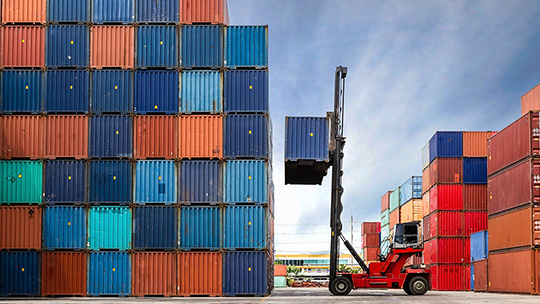Working in Vietnam as an Expat: A Quick Guide
In 2024, Vietnam ranked 8th among the top 53 destinations for global expatriates, according to the InterNations Expat Insider report. The country’s booming economy continues to drive high demand for skilled talent, resulting in wages for foreign workers that exceed local market levels.
According to the Expat Insider 2024 report, Vietnam has ranked first in the Personal Finance category for three consecutive years. It also secured impressive positions in the Ease of Settling In (13th) and Working Abroad (14th) categories. These rankings highlight the abundant potential of Vietnam’s developing economy, enriched by its vibrant culture, lush landscapes, and diverse culinary offerings. Additionally, Vietnam’s low cost of living makes it an attractive destination for expatriates.
Despite these advantages, foreigners should be mindful of several technical and bureaucratic challenges when considering a move to this emerging Southeast Asian nation.
Working in Vietnam
Working in Vietnam requires a work visa. There are a number of visas with which an expat can work. Among them, an expat’s most common form of visa is a standard work permit. This is officially known as an LD visa. It generally lasts two years and is tied to the expat’s employer. This means that when an expat leaves their job, they will lose their work permit.
For more information see: Applying for a Vietnam Work Permit: Guidelines for Foreigners and Employers
|
Vietnam Visa Types |
|||
|
Visa |
Description |
Validity |
|
|
DL |
Tourist visa |
90 days |
|
|
HN |
Meetings/Conferences |
90 days |
|
|
LD |
LD1 |
Working in Vietnam and eligible for a work permit exemption |
2 years |
|
LD2 |
Working in Vietnam with a work permit |
2 years |
|
|
LV |
LV1 |
Working with: – Agencies, departments, and units directly under the Central Party Committee; – Provincial Party Committee, City Party Committee, People’s Council, People’s Committee of province/city directly under the Central Government; and – Government, National Assembly, Central Committee of the Fatherland Front, Supreme People’s Court/Procuracy, State Audit, ministries, ministerial-level agencies, agencies under the Government. |
1 year |
|
LV2 |
Working with: – Social organizations; – Socio-political organizations; and – Vietnam Chamber of Commerce and Industry. |
1 year |
|
|
LS |
Lawyer visa |
5 years |
|
|
DT |
DT1 |
Investor visa: issued for investors with total investment capital over VND 100 billion (US$3.94 million), or for investment into ‘prioritized’ sectors, professions, or geographical areas determined by the government. |
5 years |
|
DT2 |
Investor visa: issued for investors with total investment capital between VND 50 billion (US$1.97 million) and VND 100 billion (US$3.94 million), or for investment into ‘encouraged’ sectors, professions, or geographical areas determined by the government. |
5 years |
|
|
DT3 |
Investor visa: issued for investors with total investment capital between VND 3 billion (US$118.096) and VND 50 billion (US$1.97 million). |
3 years |
|
|
DT4 |
Investor visa: issued for investors with total investment capital less than VND 3 billion (US$118.096). |
1 year |
|
|
DN |
DN1 |
Working with entities having legal status in Vietnam |
1 year |
|
DN2 |
Entering to promote services, establish commercial presences, or conduct activities according to Vietnam’s international agreements |
1 year |
|
|
EV |
Electronic visa |
90 days |
|
|
NN |
NN1-2 |
Chief Representative Office in Vietnam, Head of Project Office of foreign NGO |
1 year |
|
NN3 |
NGO Staff, Representative Office |
1 year |
|
|
DH |
Student/Internship |
1 year |
|
|
NG |
NG1-4 |
Diplomatic visa |
1 year |
|
PV |
PV1-2 |
Press and foreign correspondents |
1 year |
|
TT |
– Dependents of holder of LV1-2, LS, DT1-3, NN1-2, DH, PV1, LD1-2; or – Foreigners that are parents, spouses, or children of Vietnamese citizens. |
1 year |
|
|
VR |
Expatriates visiting their relatives or for other purposes |
180 days |
|
|
SQ |
Entering for the purpose of market survey, tourism, visiting relatives, or medical treatment: – Individuals doing business with an overseas visa-issuing authority of Vietnam, his/her spouse and children; – Individuals that present a written request by a competent agency of the Ministry of Foreign Affairs of the host country; and – Individuals presenting a diplomatic note of sponsorship by a foreign diplomatic mission or consular mission at the host country.
|
30 days |
|
|
Note: With LV1, LV2, LS, DT1, DT2, DT3, NN1, NN2, DH, PV1, LD1, LD2, and TT visas, foreigners can apply for a temporary residence card within 2 – 10 years, depending on the visa type. |
|||
Vietnamese labor contracts
Wages
According to the Expat Insider 2024 report, 86 percent of expatriates in Vietnam rate the general cost of living positively, more than double the global average of 40 percent. Remarkably, half of all respondents in Vietnam gave this factor the highest possible rating, the largest proportion among expatriates worldwide.
While the 2024 report does not include income data, the 2022 edition revealed that expatriates in Vietnam reported earning competitive salaries. The income distribution was as follows:
- 24 percent earned between US$25,000 and US$50,000 annually;
- 19 percent earned between US$50,000 and US$75,000 annually;
- 14 percent earned between US$75,000 and US$100,000 annually; and
- 8 percent earned more than US$250,000 annually.
Leave
Employees in Vietnam are entitled to 12 days of annual leave per year in addition to the stipulated public holidays.
Foreign workers are granted an extra public holiday for their own national day and one additional traditional public holiday from their home country.
|
Holiday |
Date(s) |
Notes |
|
New Year’s Day |
January 1, 2025 (Wednesday) |
Fixed date. |
|
Tet (Vietnam Lunar New Year 2025) |
For Monday-Friday work schedule: – January 27 – January 31, 2025 (Monday to Friday). – January 28 – February 3, 2025 (Tuesday to Monday).
For Monday-Saturday work schedule: – January 25 – January 30, 2025 (Saturday to Thursday). – January 27 – January 31, 2025 (Monday to Friday). – January 28 – February 1, 2025 (Tuesday to Saturday). |
Companies may select from multiple date ranges based on their work schedule. |
|
Hung Kings Commemoration Day |
April 7, 2025 (Monday) |
Fixed date. |
|
Reunification Day |
April 30, 2025 (Wednesday) |
Fixed date. |
|
International Labor Day |
May 1, 2025 (Thursday) |
Fixed date. |
|
National Day |
– September 1 – September 2, 2025 (Monday to Tuesday). – September 2 – September 3, 2025 (Tuesday to Wednesday). |
Companies may choose between two date options. |
Social security
In Vietnam, compulsory social security can be broken down into three categories: social insurance, medical insurance, and unemployment insurance.
All employers in Vietnam must pay social security for employees on labor contracts, either definite or indefinite. Likewise, employees are also compelled to make contributions to their own social security funds.
For foreign employees, they are required to participate in health insurance if the duration of the employment contract is from 3 months to under 12 months. If the duration of the employment contract is 12 months or more, social insurance is included along with health insurance.
The rate of three types of mandatory social insurance for employees and employers is, respectively, 8 percent and 17.5 percent for social insurance, 1.5 percent and 3 percent for health insurance, and 1 percent for both parties for unemployment insurance.
For more information see: HR and Payroll in Vietnam
Investing in Vietnam
Setting up a business in Vietnam
Many expats find Vietnam a great place to live and work. However, there are a plethora of opportunities for investors. Opening hospitality venues like bars, restaurants, and cafes in Vietnam is very popular with expats. It can be relatively cheap to do and can be a great side project.
There are, however, a number of steps that need to be followed. This includes tax registration, seal carving, opening a bank account, labor registration, business license tax payment, charter capital contribution, and the public announcement of the establishment of the company.
For more information see: Setting Up a Business in Vietnam
Starting a non-governmental organization (NGO)
Foreign investors have a myriad of opportunities to make money in Vietnam. However, Vietnam is a developing country, and the needs of its people go beyond simply investment.
Many expats have set up NGOs in Vietnam already, but there is still more work to be done.
Establishing an NGO in Vietnam can be a fulfilling and worthwhile experience, but there are rules and regulations specific to this sector. Expats who intend to establish an NGO should understand the requirements thoroughly and abide by the criteria put forth by the government of Vietnam.
For more information see: How to Set Up an NGO in Vietnam
Paying tax in Vietnam
Personal Income Tax
Determining how much PIT should be paid involves understanding a number of regulations and rules embedded in Vietnam’s tax code. Foreign workers in Vietnam should be careful in calculating their liability accurately and fully.
For more information see: Personal Income Tax in Vietnam
Foreign Contractor Tax
Foreign companies dealing with Vietnamese companies may need to pay foreign contractor withholding tax. This tax is somewhat complex, with a number of exemptions and different ways to calculate exact liability.
For more information see: Foreign Contractor Tax in Vietnam
Working in Vietnam: Challenging but rewarding
Overall, working in Vietnam as an expat can be a very rewarding experience. The low cost of living and high wages for foreign workers can make saving money easy. Vietnam can also serve as a gateway to Asia, with expats given the opportunity to travel throughout the region cheaply and easily.
That said, getting set up in Vietnam as an expat can be tricky. Acquiring work permits and investment visas can be overly bureaucratic, and the same goes for starting a business or an NGO. With the right support and advice, however, the process can also be incredibly smooth.
(This article was originally published in April 2022. It was last updated on December 24, 2024.)
About Us
Vietnam Briefing is published by Asia Briefing, a subsidiary of Dezan Shira & Associates. We produce material for foreign investors throughout Asia, including ASEAN, China, and India. For editorial matters, contact us here and for a complimentary subscription to our products, please click here. For assistance with investments into Vietnam, please contact us at vietnam@dezshira.com or visit us at www.dezshira.com.
Dezan Shira & Associates assists foreign investors throughout Asia from offices across the world, including in Hanoi, Ho Chi Minh City, and Da Nang. We also maintain offices or have alliance partners assisting foreign investors in China, Hong Kong SAR, Dubai (UAE), Indonesia, Singapore, Philippines, Malaysia, Thailand, Bangladesh, Italy, Germany, the United States, and Australia.
- Previous Article Payroll in Vietnam: A Guide to Compensation, Bonuses, and Benefits
- Next Article Vietnam’s Gaming Industry in 2024: Robust Growth and Emerging Opportunities

































